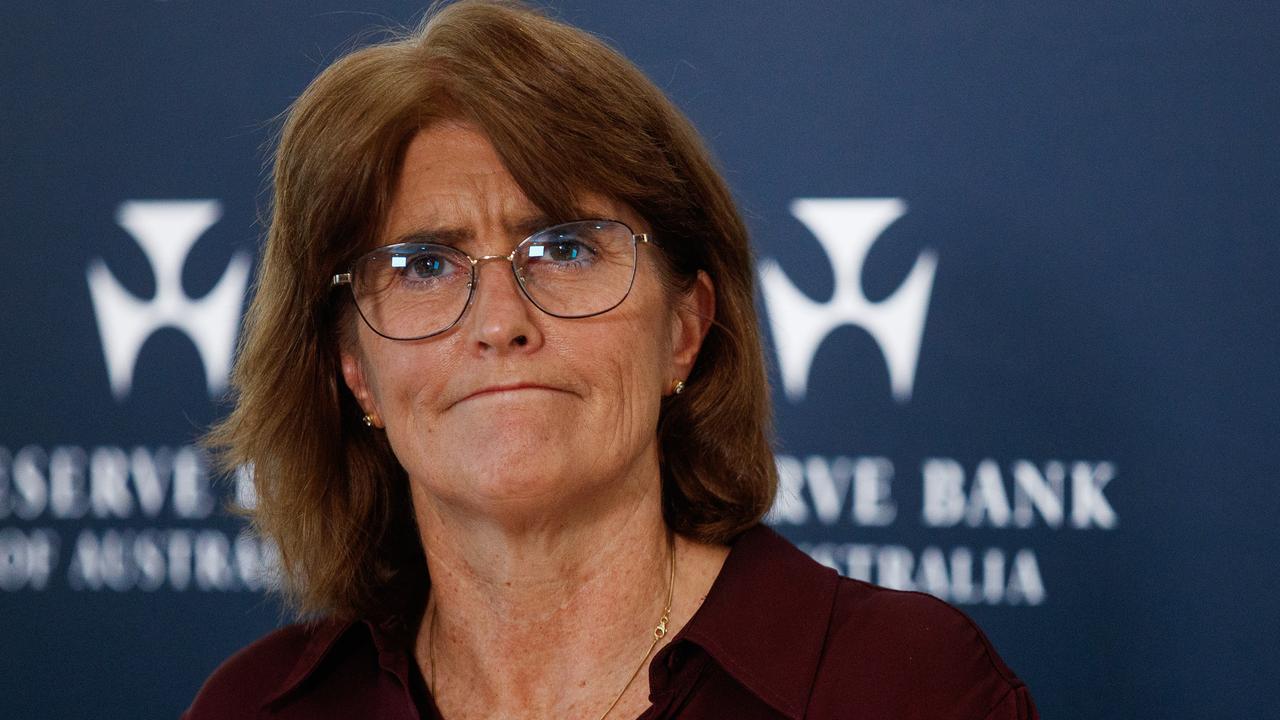It will be Michele Bullock who has to deal with the budget fallout


Chalmers is keen to see interest rates on the way down before the next election, which has to be held within the next year. While he has been able to deliver a budget projection that inflation will come down to below 3 per cent by the end of the year, low enough to pave the way for interest rates cuts, it is Bullock who will have to respond to real-world figures.
While Chalmers has worked hard to spin his budget as being economically responsible – despite its reliance on windfall revenues from company and personal taxes and the billions of dollars of new spending across the board from housing, to the Future Made in Australia incentive, to more spending on Medicare, payments for women affected by domestic violence and $300-a-head energy rebates – it is Bullock who will have to deal with the fallout.
Bullock said last week that she was expecting a budget that took into account the importance of not putting additional pressure on inflation, which came in at 3.6 per cent in the year to March.
Chalmers has described his budget as “inflation fighting and future making”. But despite his professions that he is concerned about inflation, the latest budget makes it clear the government’s top priority is delivering cost-of-living relief to an electorate suffering under higher interest rates, rents, energy costs and petrol prices as well as more expensive insurance, all while outlining its Future Made in Australia vision for “growth”.
The latest budget forecasts having the CPI come down to 3.5 per cent this financial year, down from 6 per cent in the 2022-23 financial year, falling again to 2.75 per cent in 2024-25.
Going into the budget, Chalmers argued that the lower Treasury projection for inflation by the end of the year, compared to the RBA projection that inflation could rise to 3.8 per cent, was because the RBA had not yet seen the announcements in the budget.
Once it saw the budget announcements, he argued, the RBA would come around to the Treasury’s optimistic point of view.
But while the RBA can make its own projections, in the end it deals with the harsh reality of the official inflation figures, not wishful thinking. The slew of handouts announced in the budget, on top of the stage three tax cuts, which come into effect on July 1, has all the indications of being inflationary.
In the end the proof will be in the CPI pudding. Bullock has already made it clear that the RBA at its last meeting had debated potentially increasing interest rates.
Bullock’s nerve, and the independence of the RBA under her leadership will be tested between now and the election, with the government increasingly eager to go to the polls with rates on the way down. If Chalmers’ budget is indeed inflationary, the difference in view between the RBA and the government could become embarrassing for the government as the year progresses. The budget also comes at a time when Chalmers’ plans to introduce a second Reserve Bank board are in a delicate balance. Having two boards would give Chalmers the chance to put more of his own appointees to the monetary policy setting board.
Chalmers has done a great job in selling his budget with one of the most active pre-budget charm offences seen in Australia for some time. But it is the real figures for inflation, not the spin, that will count and which Bullock cannot ignore.







Jim Chalmers’ third budget now puts the spotlight on Reserve Bank governor Michele Bullock.